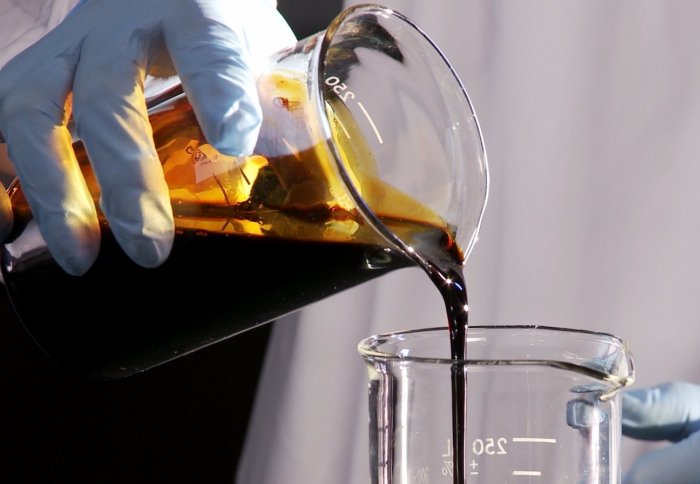

New research paper describes a simple and efficient strategy to separate high-value feedstocks from pyrolysis bio-oil
The need to replace our current petroleum-based economy with bio-based is an increasingly pressing issue. Exploiting all the possible uses of lignocellulosic biomass, otherwise known as plant dry matter, and finding efficient ways to convert it into useful products has become a major research area in recent years. One potential petroleum-substitute is pyrolysis bio-oil, obtained from thermal processing of waste biomass. A key research question is how to – similarly to the petroleum-based economy – maximise the revenue obtained from fuels and chemicals produced from biomass.
In a new research paper, titled “Catalysis Meets Nonthermal Separation for the Production of (Alkyl)phenols and Hydrocarbons from Pyrolysis Oil”, researchers from three European institutions describe a new simple strategy to selectively generate and separate valuable alkylphenols from pyrolysis bio-oil. There has been relatively little research on the extraction of these high-value aromatics, which are produced during the pyrolysis of biomass, as the separation is rather expensive.
The research, led by Dr Roberto Rinaldi from Imperial College London joint with researchers from the Max Planck Institute (Germany), developed a strategy which uses selective hydrodeoxygenation (catalysed by molybdenum carbide) and nonthermal separation to obtain alkylphenols for further use and hydrocarbons as a fuel fraction.
Alkylphenols can potentially replace phenols produced from petroleum in applications like agrochemicals, surfactants and lubricant or polymer additives. The strategy to separate the phenols and hydrocarbons from each other requires no prior fractionation, no further synthetic steps and no input of additional materials. It is a simple and economic way to separate phenol and alkylphenol species produced from pyrolysis bio-oil.
The research was published in the leading journal Angewandte Chemie: Cao, Z. et al. 2017. Catalysis Meets Nonthermal Separation for the Production of (Alkyl)phenols and Hydrocarbons from Pyrolysis Oil. Angewandte Chemie, Volume 56, Issue 9, 2334–2339
[Article written by Dora Olah an Undergraduate student in the Department of Chemical Engineering.]
Article text (excluding photos or graphics) available under an Attribution-NonCommercial-ShareAlike Creative Commons license.
Photos and graphics subject to third party copyright used with permission or © Imperial College London.
Reporter
Anusha Sri-Pathmanathan
Department of Chemical Engineering




Leave a comment
Your comment may be published, displaying your name as you provide it, unless you request otherwise. Your contact details will never be published.